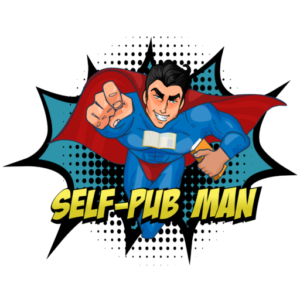Attention all word wizards, wordsmiths, and literary mavens! The world of book publishing is undergoing a massive transformation, and artificial intelligence (AI) is at the forefront of this revolution. From writing and editing to marketing and distribution, AI-powered tools and technologies are changing the game for authors and publishers alike.
In this blog post, we’ll explore how AI book publishing is reshaping the publishing landscape and provide real-world examples of how industry professionals leverage these tools to create, promote, and sell their books more effectively than ever.
Table of Contents
Enhanced Writing Capabilities
One of the most exciting ways AI transforms the publishing industry is by enhancing the writing process. With AI-powered editing and proofreading tools like Grammarly and ProWritingAid, authors can easily catch typos, grammatical errors, and stylistic inconsistencies. These tools act as virtual writing assistants, helping writers polish their prose and create error-free manuscripts.
But that’s not all! AI is also being used to generate content ideas and even entire chapters. Companies like Jasper.ai and Shortly AI offer AI-driven content generation tools that can help writers overcome creative blocks and spark new ideas for their stories.
Targeted Marketing Strategies
Another area where AI is making a significant impact in the publishing industry is marketing. With AI-powered analytics tools, publishers can gain deep insights into their target audiences and create highly targeted marketing campaigns.
For example, Bookbub, a popular book promotion platform, uses machine learning algorithms to analyze reader behavior and preferences. This allows publishers to create highly personalized book recommendations and targeted ads that are more likely to convert into sales.
AI-Powered Email Marketing
AI also optimizes email marketing campaigns for book launches and promotions. Mailchimp, a popular email marketing platform, uses AI-powered algorithms to help publishers segment their email lists and create highly targeted campaigns based on subscriber behavior and interests.

Interactive Reader Experiences
AI is changing the way books are written and marketed, as well as the way readers experience them. With the rise of interactive ebooks and AI-powered chatbots, readers can now engage with stories in new ways.
Chatbots for Reader Engagement
One example is Scribd, an ebook subscription service that recently launched an AI-powered chatbot called “Scribd Editors.” The chatbot engages with readers by recommending books based on their preferences and reading history and even provides personalized writing tips and prompts.
Efficient Distribution Channels
AI is also streamlining the book distribution process, making it easier for authors and publishers to get their books into readers’ hands. With AI-powered print-on-demand services like Amazon’s Kindle Direct Publishing (KDP) and IngramSpark, authors can publish their books with just a few clicks and have them printed and shipped directly to readers.
AI for Audiobook Production
AI is also being used to create audiobook versions of books more efficiently. Companies like DeepZen and Speechki use AI-powered text-to-speech technology to generate human-like audiobook voiceovers, saving publishers time and money on production costs.
Data-Driven Decision Making
Perhaps one of the most significant ways AI transforms the publishing industry is by enabling data-driven decision-making. With AI-powered analytics tools, publishers can gain unprecedented insights into reader behavior, preferences, and purchasing habits.
Predictive Analytics for Book Sales
For example, Inkitt, a data-driven publishing platform, uses machine learning algorithms to analyze reader engagement data and predict which books will likely become bestsellers. This allows publishers to make more informed decisions about which books to acquire and how to market them.
Case Study: Publishing giant Penguin Random House recently partnered with AI analytics company Yewno to gain deeper insights into reader behavior and preferences. Using Yewno’s AI-powered platform, Penguin Random House identified new market opportunities and optimized its marketing strategies, significantly increasing book sales.
Building a Thriving Community
Finally, AI is helping to build thriving communities of authors, publishers, and readers. With AI-powered social networking platforms like Wattpad and Goodreads, writers can now connect with readers and get real-time feedback on their work.
Subheading: AI-Powered Writing Communities
One example is the AI-powered writing community Scribophile. The platform uses machine learning algorithms to provide writers with personalized feedback on their work and connect them with other writers who share their interests and writing styles.
As you can see, AI is transforming the book publishing industry in countless ways. From writing and editing to marketing and distribution, AI-powered tools and technologies enable authors and publishers to create, promote, and sell their books more effectively than ever.
But this is just the beginning. As AI evolves and matures, we expect to see even more innovative applications in the publishing industry. So whether you’re a writer, publisher, or avid reader, one thing is clear: the future of publishing is AI, and it’s an exciting time to be a part of this rapidly evolving industry.
Ready to leverage the power of AI in your publishing journey? Start by exploring AI-powered tools and platforms mentioned in this post, such as Jasper.ai for content creation, Mailchimp for email marketing, and Scribophile for writing community support. Don’t forget to join the conversation on social media using the hashtag #AIPublishing to connect with other industry professionals and stay up-to-date on the latest AI trends and innovations in the publishing world.






